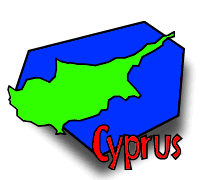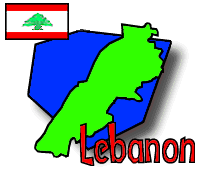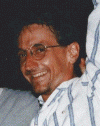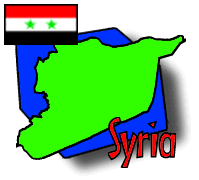| Webmaster's Note: Because the BikeAbout team is traveling in smaller groups for a little while, we have changed the format of the journal slightly. The rider notes for the lead group (today it's the women, who are in Cyprus) are followed by notes for the other group(s). When the group rejoins in late February or early March, we will return to the original format for these pages. |
While Ethan, Anthony and Padraic are on their way through Jordan to Lebanon and Syria, Corinne and andrEa have remained on Cyprus:
topics: politics, Amnesty International, Greek vocabulary; jump to dispatch
Person of the Day: Malian Vartan ![]()
Place of the Day: Amnesty International, Nicosia
Group Dispatch (Cyprus), January 25–28, 1998

Questions? Ask Corinne ![]() !
!
 |
 |
 |
 |
 |
|
Itinerary/ Journal |
Discussions |
About Cyprus |
eDscape Projects |
Scrapbook |
|
|
|
|
|
While, Corinne and andrEa have remained on Cyprus, Ethan, Anthony, and Padraic are in Jordan:
topics: Amman (Jordan), visas, Irbid (Jordan), the Palestinian Question, King Hussein, HISTORY, Beirut first impressions; jump to dispatch
Person of the Day: Fadi Alawneh ![]()
Place of the Day: Books@Café
Group Dispatch (Jordan and Lebanon), January 25–28

Questions? Ask Padraic ![]() !
!
 |
 |
 |
 |
 |
|
Itinerary/ Journal |
Discussions |
About Lebanon |
eDscape Projects |
Scrapbook |
|
|
|
|
|
|
|
On January 27, while Corinne and andrEa were still on Cyprus and Ethan and Padraic were stuck in Jordan, Anthony left Lebanon and headed for Syria:
topics: border crossing, Arthur James Balfour, Crusades, citadel, theatre; jump to dispatch
Food of the Day: The Fig
Word of the Day: Esh-lo'nak? — "What's up?"
Tech Fact of the Day: Border Crossings
Person of the Day: Arthur James Balfour
Place of the Day: Syria
Group Dispatch (Syria), January 27–28

Questions? Ask Anthony ![]() !
!
 |
 |
 |
 |
 |
|
Itinerary/ Journal |
Discussions |
About Syria |
eDscape Projects |
Scrapbook |
|
|
|
|
|
Copyright 1997-2004 BikeAbout. All rights reserved.